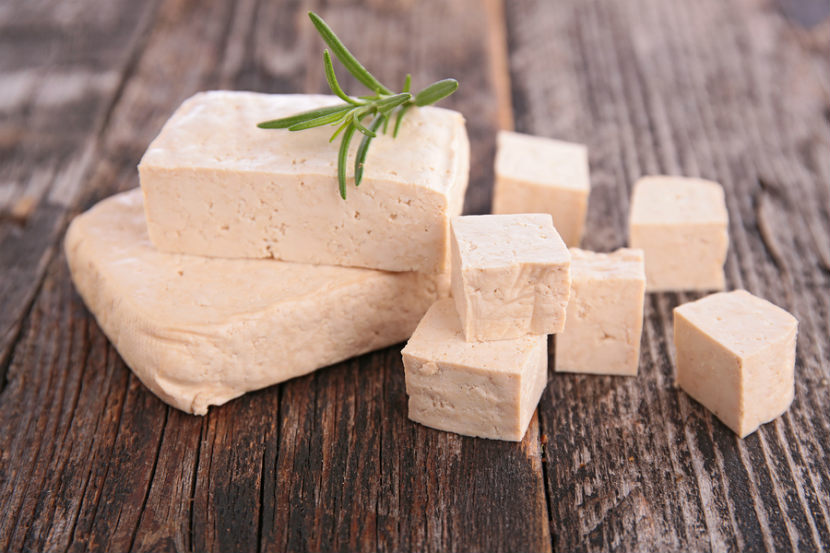Strengthen your bones and teeth with these calcium-rich foods.
Calcium is essential to maintaining healthy teeth and bones. And now there is some research that shows that calcium might help with blood pressure control, says Tara Collingwood, a registered dietitian (RDN) in private practice in Orlando, Florida. But do you know how much calcium you need each day, and which foods will get you the most bang for your buck when it comes to calcium intake?
Women and men ages 19 to 50 need 1,000 milligrams a day, according to the Dietary Guidelines for Americans, 2020-2025. The recommended amount is 1,200 milligrams per day for women over 50 years old and men over 70.1 Collingwood says she recommends people always try to get calcium through food first, because it is absorbed better by the body. But if you can’t, it’s okay to turn to supplements. If you’re worried you aren’t getting all your milligrams in, check out the list below for some calcium-rich choices.
Yogurt
.jpg)
A portable way to put calcium in your diet, yogurt is also a good source of protein (with Greek yogurt containing the highest amount of protein per serving). If you are looking to limit added sugars, consider plain yogurt as a base and mix in some fresh berries for a dose of fiber. This satisfying and healthy afternoon snack with almost 50 percent of your daily calcium needs.
Recommended Serving Size: 8 ounces of plain 2%, 452 milligrams of calcium, 127 calories 8 ounces of fruited 2% yogurt, 345 milligrams of calcium, 190 calories
Milk

Also a good source of protein, milk is our most common supply of calcium. It is often fortified with vitamin D, which helps your body absorb calcium more effectively.2 If you’re allergic to milk or lactose intolerant, look for soy milk that is fortified with calcium as an alternative, says Collingwood.
Recommended Serving Size: 8 ounces of low-fat 1%, 305 milligrams of calcium, 102 calories
Romano and Swiss Cheese

These varieties have the highest amount of calcium of all the cheeses, according to Collingwood. Cheese is also a good source of vitamins B2 and B12. Since cheese is also high in fat, you’ll want to consume it in moderation. Serve four small slices of Swiss with whole wheat crackers for a extra serving of whole grains. Or choose Romano cheese to top your pastas, instead of Parmesan, for a bone-building supplement.
Recommended Serving Size: Romano: 1.5 ounces, 452 milligrams of calcium, 150 calories. Processed Swiss cheese: 2 ounces, 438 milligrams calcium, 188 calories Non-processed Swiss cheese: 1.5 ounces, 336 milligrams, 168 calories
Tofu

Look for tofu that says on the label that it’s processed with calcium in order to gain maximum benefit from this vegetarian staple, which is derived from soybeans. Tofu is also a good source of a variety of vitamins and minerals.
Recommended Serving Size: ½ cup raw tofu processed with calcium, 861 milligrams of calcium, 181 calories
Spinach

Although not nearly as high in calcium as dairy products, spinach does have more calcium than most vegetables. However, the calcium isn’t absorbed as well as the calcium in dairy products, says Collingwood.
Recommended Serving Size: 1 cup of raw spinach, 25 milligrams of calcium, 6 calories ½ cup cooked spinach, 122 milligrams of calcium, 45 calories (This amount of cooked spinach has more calcium because it actually represents three to four cups of raw spinach.)
Broccoli

The same thing holds true for broccoli as it does with spinach: better than many vegetables when it comes to calcium, but still not as high as dairy.
Recommended Serving Size: 1 cup of raw fresh florets, 43 milligrams of calcium, 31 calories
Calcium-Fortified Orange Juice

If you can’t eat diary, Collingwood recommends turning to calcium-fortified products like orange juice to meet your daily calcium needs. Many companies manufacture calcium-fortified versions of their popular products.
Recommended Serving Size: 8 ounces, about 300 milligrams of calcium, 110 calories (depending on the brand)
Source: https://www.bhg.com








